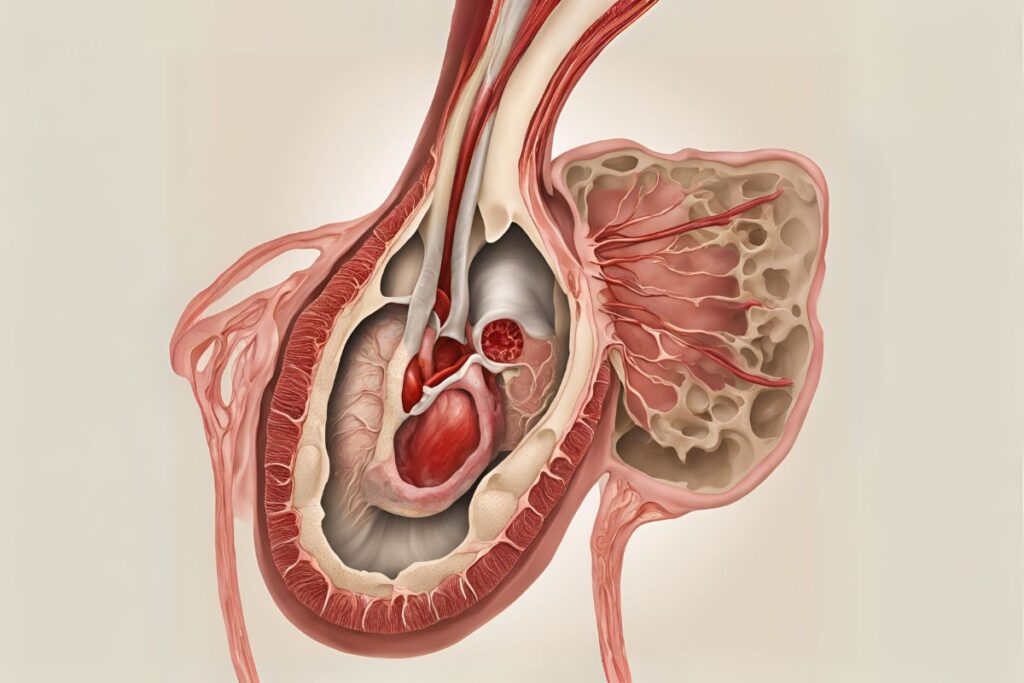Imagine this: you’re going about your day, feeling just fine, when suddenly your heart skips a beat, or you feel out of breath after climbing the stairs. What if I told you that these seemingly harmless symptoms could be a sign of something far more serious—valvular heart disease? The scariest part is many people don’t even know they have it until it’s too late. But don’t worry—we’ll break it down for you, expose the hidden dangers, and show you how to protect your heart.
What is Valvular heart disease?
At the core of your heart’s functionality are its valves—the aortic, mitral, tricuspid, and pulmonary valves. These valves control blood flow, making sure it moves in the proper direction. Your heart’s capacity to pump blood well may be greatly reduced if these valves are compromised, either by regurgitation (leakage) or stenosis (narrowing). Driving a car with a clogged fuel line is similar in that the engine would eventually stop.
The worst part is that valvular heart disease doesn’t usually have noticeable symptoms. It can grow silently and usually doesn’t show up until serious harm has been done. The most terrifying aspect? Heart failure, stroke, and even sudden cardiac death are all greatly increased by valve dysfunction. Are you afraid yet? Don’t be. Let’s examine how to identify it early and stop it from taking control.
The Symptoms You Should Never Ignore
You might feel just fine, but that doesn’t mean your heart is. Fatigue, difficulty in breathing, or swelling in the legs are all signs that something might be wrong. Let’s break it down:
● Shortness of breath after light activity like walking or climbing stairs? That’s your heart telling you it’s struggling.
● Swelling in your legs, ankles, or abdomen can indicate that your heart isn’t pumping blood effectively.
● Chest pain or palpitations: These aren’t just uncomfortable—they could be your body’s cry for help.
Here’s the shocking truth: by the time these symptoms become noticeable, the damage could already be severe. But don’t panic just yet—if you catch the disease early, it’s treatable.
Recent Guidelines and Research: Shattering the Myths
Now, here’s where we shatter some myths that could be holding you back from getting help.
Myth 1: “Valvular Heart Disease is Just for the Elderly.”
Reality: Yes, age is a risk factor, but congenital heart defects and rheumatic fever can affect young people, too. In fact, valvular heart disease is increasingly being diagnosed in younger populations due to rising cases of infective endocarditis and poor management of rheumatic fever in childhood.
Myth 2: “Valvular heart disease cannot be prevented in any way.”
Reality: Regular screening can catch valve problems before they worsen. The American College of Cardiology (ACC)and American Heart Association (AHA) recommend regular monitoring for those with risk factors like hypertension, diabetes, and family history.
Myth 3: “The only treatment for valve disease is surgery.”
Reality: While surgery might be necessary in some cases, medication can manage the disease in its early stages. You can lower the burden on your heart and limit the disease’s progression by taking blood pressure medicine and anticoagulants.
How to Prevent and Manage Valvular Heart Disease
Here’s the empowering part: you can protect your heart. Catching the disease early through routine check-ups is essential. If diagnosed, lifestyle changes, medications, and, when necessary, surgery can stop further damage and restore damage. Follow these steps:
● Control high blood pressure to reduce the strain on your heart.
● Eat a heart-healthy diet rich in potassium, magnesium, and fiber to support heart function.
● Exercise regularly to keep the heart strong and circulation efficient.
● Quit smoking and reduce alcohol intake—these are major contributors to cardiovascular disease.
Remember, early intervention is key. Don’t wait for symptoms to worsen—see your doctor for regular check-ups and heart screenings.
How HealthPil Can Help:
At HealthPil, we understand that navigating heart health can be overwhelming. Our platform connects you with top cardiologists who can help diagnose, treat, and manage valvular heart disease. Whether you need a second opinion, medication management, or advice on heart health, we’re here to support you. Don’t wait for the symptoms to worsen—take control of your heart health today.
Disclaimer:
This article is intended for informational purposes only and should not replace professional medical advice. Always consult your healthcare provider for diagnosis and treatment options.

